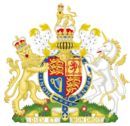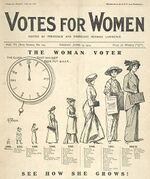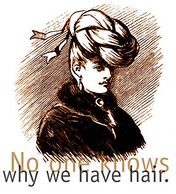Parliamentary Reform in Britain
“As long as i can still be massively gay all the time i don't care what happens.”
Parliamentary Reform in Britain is a subject that has long exited students of history. These are the dates to remember:1832, 1867, 1884, 1918, 1929 and 1969. That equals 9470 years of extra homework to remember when knowing this will get the job currently occupied by David Cameron.
As you can see the electorate went from a few rich men to granting the vote to some hippies in 1969 when everyone over the age of 18 had the right to mark their preference. If you were 18 and a hippie in 1832..then you had a long wait but that is how British history works. Nothing much has happened since Henry VIII or Oliver Cromwell that saw kings and queens losing their heads.
Reform began because many people wanted it to or thought they did. It ended on a similar basis. Asked about Parliamentary Reform, a British historian with the name of Mr Python said, “I have no idea why it happened at all! This country was great until that bloody lot of foreigners, commoners and Simon-Schama-loving nancy-boys got the vote!”. Mr [sic] Schama himself [sic] says, “Look, we’re queer and we’re here, so get used to it”
Why people wanted reform[edit]
| Part of a series on |
| Politics of the United Kingdom |
|---|
 |
| Government |
| Monarchy |
| Parliament |
| Leaders |
| Elections |
| Parties |
|
|
In 1792 the Italians (who are actualy the French with mustaches) went nuts and killed loads of people. They designated it the Second Nintendo Revolution. Among the deaths were several kings, one of which being the King of France Louie Louie (named after the popular song by the Kingsmen).
The Britonish people generally hated the French, and not willing to be outdone they decided to kill some people too, and maybe get some votes while they were at it. Vera Britain and her then husband Liam Gallagher were very keen on reform because Manchester was considered by the aristocats, who ran Britain at the time, an awful, smelly, scum-filled place (much as it is today) which frankly, didn’t deserve to be able to choose who the Prime Minister was.
The rest of the UK, especially Jeremy Bentham, wanted reform because they were hungry, whether this was for bread or for the blood of virgins has never been established. The middle classes were not only hungry but very intelligent and noticed that only people who were related to the king or the Prime Minister seemed to be able to vote, they subsequently started asking for the franchise to be increased form 8 people to around 28 to include the whole of their class.
There were also some other reasons, which Benjamin Disraeli knows about, but he won’t tell anyone, the bugger.
Corruption[edit]
The other bad thing, other than the awful smell of Corinne Bailey Rae’s nuts, that was happening in Britain in the 1830s was election corruption. This was the process of those with the vote being bullied by singing sensation Chairman Mao in order to make them vote for the We Hate Homosexuals Party. This got so bad during the 1828s that a special police force, the meat flap brigade, had to be created to restore order. There were 495.6 reports of electoral rape/forced kitten huffing during that year alone.
The Whigs[edit]
The Whigs were a political party in the 1800s. They now exist under the title New Labour but have continued their hardline policy of "Ridiculous wigs for all" right into the 21st century. In America they are known as wiggas.
Whigs were in fact the party that most wanted reform, their memebership being drawn exclusively from the bloody foreigner and gay classes. Their leader, David Furnish, was obsessed with both anal wigs and utilitarianism, but tragically suffered from brain failure and was asked to resign as party leader. His shoes were filled by latter-day Whig devotee David Cameron, as well as with turds, the origin of the phrase that a vague candidate is "as slippery as a shoe-full." He took the party in a new direction, renaming it New Whigism. It was this decision that would prove to be key in Reform's eventual success.
Benjamin Disraeli wasn't a Whig, neither was the Zombie James Brown.
The Tories[edit]
The Tories still exist today. Back then they were right miserable gits, a tradition held feverently right up to the current present now of contempry society. The Tories hated reform, this was because they already had all the money, and did not want anyone else getting their grubby mits on any of all the money. They were inherently simular to the Whigs, the only physical differences were that Tory's wigs were made of money rather than pubic hair (known as public hair in the 1830s) and a third nipple. Really though, the Tories made absolutely no difference to the course of reform, as you will soon discover.
Chartism[edit]
Chartism was a political movement by people who liked lists and graphs. The original charter had a list of demands:
- Short parliaments
- Shorter speeches
- MPs could only make a speech in green underpants,
- Parliament to be given over to the people for regular fancy dress parties.
- Chavs have rights too.
The Chartists were considered to be wussy Marxists and quickly faded away.
Continuity[edit]
Nothing else happened to do with Parliamentary Reform in Britain and the country’s political system has never been altered since, despite a slight drop in the number of Tory MPs accidentally strangling themselves during fetish sex.

